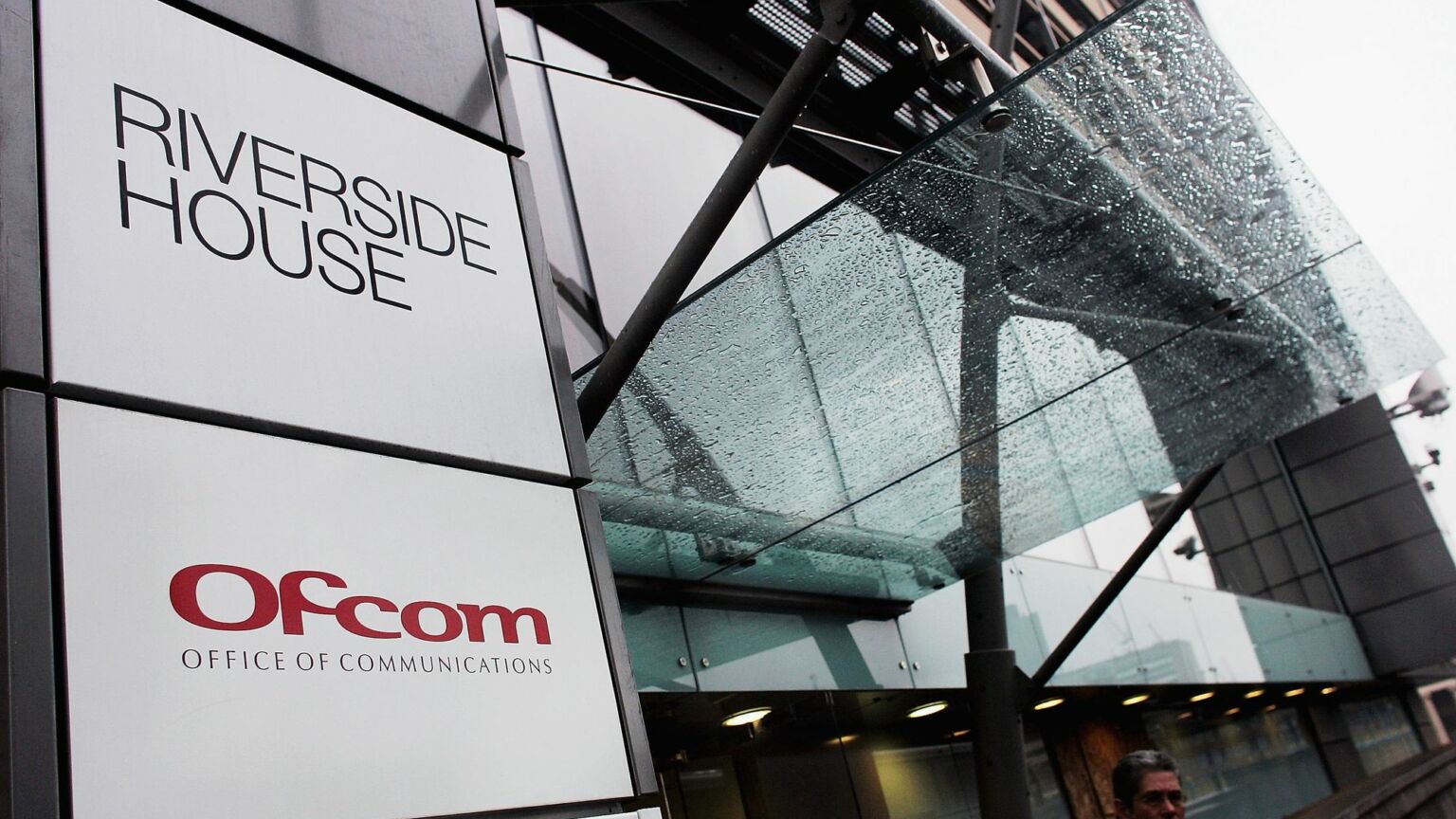Why is Ofcom trying to censor Americans?
The UK’s communications quango is sticking its beak into America.

Want unlimited, ad-free access? Become a spiked supporter.
When Preston Byrne received a demand from Ofcom for £20,000 last month, he printed it off, put it through the shredder and turned it into bedding for his pet hamster.
The lawyer, who is representing US messageboard 4chan in its legal wrangling with Ofcom, even publicly poked fun at Britain’s communications quango, telling it that his hamster – Mr Whiskers – said the letter ‘smelled of failure’.
It’s a sign of just how confident the American attorney is in his assertion that Britain’s Online Safety Act has no legal force outside the UK, despite Ofcom’s claims to the contrary.
The poorly drafted legislation – which was introduced by the Conservatives, and came into effect in July – gives Ofcom the task of policing the worldwide web, and makes little distinction as to whether a company actively operates in Britain or not.
Under the law, Ofcom has been awarded the power to impose fines against both foreign and domestic tech firms – and even imprison senior executives for multi-year jail terms – if they fail to enact whatever directives its bureaucrats demand of them.
Byrne, who describes the Online Safety Act as ‘the most expansive internet censorship regime in the Western world’, tells me it has about as much legal weight as UK prime minister Keir Starmer claiming ‘the Moon is made of cheese’ and expecting Americans to recognise that, in law.
He adds:
‘They must know that these processes are not enforceable by American courts, so what they’ve done instead is shoot off emails across international boundaries. But you cannot compel an American citizen to do something without a US court order, and you cannot compel a US court to issue an order that’s unconstitutional. They know this, America knows this, Congress knows this, the president knows this. So what they’re doing instead is staging a mock public execution where they send strongly worded letters and there will be absolutely no consequences for 4chan whatsoever.’
Since the Online Safety Act came into force, multiple American social-media companies have been threatened with enforcement by Ofcom. Tellingly, every single one has refused to comply. Wikipedia co-founder Jimmy Wales similarly announced in October that his online encyclopedia will refuse future Ofcom demands to restrict access to its site.
Ofcom insists that ‘any service linked to the UK must protect its users, wherever it’s based’. But at the crux of the dispute is the issue of sovereignty, and what Byrne describes as his client’s First Amendment protection against ‘compelled speech’. Put bluntly, he says foreign bureaucrats cannot force US companies with no connection to their country to write endless reports to satisfy their censorial ambitions.
Though billed by politicians as an anti-pornography law, the Online Safety Act is a blank cheque for censorship. Under the law, any platform with any British visitors must cough up reams of bureaucratic ‘risk assessments’, provide annual transparency reports and revenue disclosures immediately on demand, and supply Ofcom with proof of content-moderation systems, irrespective of where they are based, or if they have any business in Britain.
Fail to file the paperwork on time? Receive a fine. Fail to censor fast enough? Receive another. Dare to ignore the lot? You could be fined, arrested and locked up. (See Mr Whiskers’s cage floor for full details.)
But while 4chan – which has no assets in Britain – is unlikely to ever have to pay its £20,000 fine (or the daily £100 penalties for non-payment), the same cannot be said of larger American companies like Meta and Google. These firms have billions parked in Britain, with shiny offices in London and tens of millions of local users. The Online Safety Act allows for seizure of up to 10 per cent of a company’s global revenue.
It’s why Byrne’s strategy is not just trash-talking and civil cases; he’s mounting a multi-pronged assault on foreign censors.
In August, he and his co-counsel, Ron Coleman, filed a civil suit against Ofcom in the US District Court for the District of Columbia. They argued Ofcom’s demands breached US laws, including the Foreign Sovereign Immunities Act, the Fourth Amendment’s protection against unwarranted searches, and his client’s First Amendment protections against compelled speech. The duo, who are both working for free, contend that the quango is attempting to supersede due process, explaining that American law requires foreign demands be vetted through international treaties, not emails.
‘We were trying to goad them into a political blunder’, says Byrne – a tactic he claims has paid off spectacularly with Ofcom’s October ‘confirmation decision’. Then, Ofcom claimed sovereign immunity under US law to shield itself from 4chan’s lawsuit, while scoffing at the same US Constitution when 4chan cited it.
‘We think that this whole process… really now demonstrates beyond any doubt that the Europeans are attempting to interfere with the First Amendment’, he explains.
The legal to-and-fro may be confusing, but Byrne’s war against the Online Safety Act isn’t confined to the courtroom. He’s also written a draft law, which if ratified could potentially kill off all foreign attempts to censor the web.
Byrne has proposed a so-called ‘GRANITE Act’, which is currently being ‘noodled’ by state and federal politicians, and could possibly come before New Hampshire’s state legislature as early as January. It would strip sovereign immunity from foreign censors, allow Americans to sue for damages equal to any threatened fines, and hold foreign states, agencies and officials jointly and severally liable. If enacted, it would mean that if Ofcom tried to fine Meta 10 per cent of its $164 billion revenue, as the Online Safety Act allows, Meta could countersue – with the courts able to seize British assets in America to offset any UK judgement.
‘America can’t dictate what [Ofcom does] in [its] own borders’, says Byrne. ‘But we can sure as shit dictate to them what they can do in ours. There are a lot of people watching to see how it plays out. They’re waiting for permission to start pushing back themselves. And I don’t think they’re going to get that permission until congress gives it to them.’
The plain-speaking attorney believes that if the Online Safety Act fails in its bid to control American tech firms, parliament will have to revisit the political calculus of having it in the first place.
He probably has a point. We certainly don’t have any companies of our own to censor, except of course OnlyFans. And, given it has already lost over £1 million to Ofcom fines, we can hardly afford to risk it relocating to America, too.
The Online Safety Act is, and always was, a daft law, drafted by people with no idea how the world works. Time to make hamster bedding out of it.
Adam Edwards is a freelance writer whose work has appeared in the Telegraph, The Times and the Financial Times.
£1 a month for 3 months
You’ve hit your monthly free article limit.
Support spiked and get unlimited access.
Support spiked – £1 a month for 3 months
spiked is funded by readers like you. Only 0.1% of regular readers currently support us. If just 1% did, we could grow our team and step up the fight for free speech and democracy.
Become a spiked supporter and enjoy unlimited, ad-free access, bonus content and exclusive events – while helping to keep independent journalism alive.
———————————————————————————————————————————–
Exclusive January offer: join today for £1 a month for 3 months. Then £5 a month, cancel anytime.
———————————————————————————————————————————–
Monthly support makes the biggest difference. Thank you.









Comments
Want to join the conversation?
Only spiked supporters and patrons, who donate regularly to us, can comment on our articles.